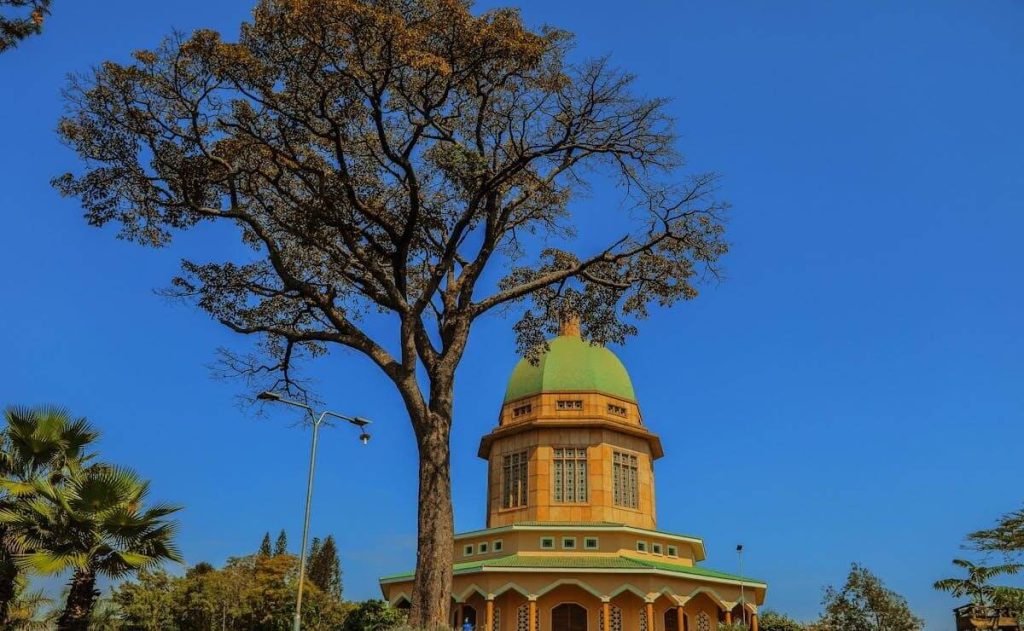There are main types of land ownership in Uganda, each governed by a legal and traditional framework.
Understanding the different types of land ownership in Uganda is crucial for anyone looking to engage in land acquisition, investment, or management in the country.
This guide dives into each type of land ownership in Uganda, explores current trends in land ownership, and provides helpful insights for people looking to purchase land in Uganda.
This guide dives into each type of land ownership in Uganda, explores current trends in land ownership, and provides helpful insights for people looking to purchase land in Uganda.
You Might Also Like: Real Estate in Uganda: Your Comprehensive Guide to Residential Real Estate
Customary Tenure represents one of the oldest types of land ownership in
Uganda, deeply rooted in the traditions and cultures of indigenous
communities. Under Customary Tenure,
land is typically inherited and passed down through generations, with
community members having rights to use and cultivate it.
The tenure provides a sense of security for residents but can also bring limitations when it comes to formal transactions, as customary land is not officially registered, which subsequently also often leads to disputes and challenges.
The tenure provides a sense of security for residents but can also bring limitations when it comes to formal transactions, as customary land is not officially registered, which subsequently also often leads to disputes and challenges.
Key characteristics of Customary Tenure:
- Land is typically passed down through family lines, with sons often inheriting the primary share.
- Customary land cannot be permanently sold, although some communities allow temporary transfers with community approval.
- Formal land titles are often absent, relying instead on community knowledge and memory.
2 Advantages of Customary Tenure:
- The system fosters a sense of belonging and collective responsibility for the land.
- Traditional rules often promote practices that conserve the land for future generations.
Leasehold tenure in Uganda involves renting land from the freeholder for
a specific period, typically ranging from 49 to 99 years.
This type of land ownership in Uganda is governed by formal agreements and is often used for commercial and agricultural developments.
Leaseholders have the right to develop the land according to the terms of the lease but must return the land to the freeholder at the end of the lease period unless the lease is renewed.
This type of land ownership in Uganda is governed by formal agreements and is often used for commercial and agricultural developments.
Leaseholders have the right to develop the land according to the terms of the lease but must return the land to the freeholder at the end of the lease period unless the lease is renewed.
Key characteristics of Leasehold Tenure:
- Ownership is limited to the agreed-upon lease period.
- Leases can potentially be renewed upon agreement with the landowner and fulfillment of lease terms.
- Leasehold rights can be sold or transferred to another party, subject to the original lease agreement.
- Lease agreements are documented, providing greater security of ownership compared to customary tenure.
3 Advantages of Leasehold Tenure:
- Documented leases offer greater clarity and security for investments and development.
- Leasehold titles can be used as collateral to secure loans for land development.
- Lease agreements can include provisions for sustainable land use practices.
Freehold tenure offers the highest-degree of ownership in Uganda. Under
this system, the landowner has complete control over the land
and can utilize or dispose of it at will.
Freehold land is registered and the owner is issued a title deed, which provides legal proof of ownership.
This type of land ownership has been less common in Uganda traditionally, but is now increasing as it is highly sought after due to the permanence and security it provides.
Freehold land is registered and the owner is issued a title deed, which provides legal proof of ownership.
This type of land ownership has been less common in Uganda traditionally, but is now increasing as it is highly sought after due to the permanence and security it provides.
Key Characteristics of Freehold Tenure:
- Land ownership is indefinite, offering maximum control and flexibility.
- The owner can utilize the land for any legal purpose without limitations.
- Freehold land can be easily bought, sold, or transferred without restrictions.
- Ownership is documented through a land title, providing the highest level of security.
3 Advantages of Freehold Tenure:
- The certainty of ownership encourages investment in land development projects.
- Land can be readily used as collateral for loans or sold for a fair market value.
- Freehold owners have complete control over land use and development decisions.
Land ownership in Uganda is undergoing significant transformation, driven
by economic development, population growth, and legislative
changes.
Here are 4 main land ownership trends in Uganda:
Here are 4 main land ownership trends in Uganda:
Trend #1- Increased Formalization and Land Registration
The most pivotal trend is the push towards the formalization and registration of land rights. The Ugandan government, with support from international organizations, has been making strides in creating a more accessible land registration system.Trend #2- Conversion of Customary Land into Freehold or Leasehold
As the country urbanizes and market pressures increase, there’s a growing movement towards the transformation of customary land into more formal ownership types, specifically freehold or leasehold.Trend #3- Foreign Investment and Land Acquisition
Uganda’s fertile land and strategic location have attracted significant foreign interest. Foreign investors, particularly in real estate and mining sectors have been acquiring rights to large swathes of land.Trend #4- Urbanization and Land Use Planning
Rapid urbanization is reshaping land ownership and use patterns in Uganda. Urban sprawl and the expansion of cities are putting pressure on surrounding agricultural lands, leading to land conversions and increasing property values.
Read More: Understanding Property Flipping
Check Out TLG Living!
Understanding the types of land ownership in Uganda is essential for anyone looking to invest, live, or work within the country. The dynamics of Customary, Leasehold, and Freehold Tenure have profound implications, and knowledge of their differences is essential for informed decision-making.
Understanding the types of land ownership in Uganda is essential for anyone looking to invest, live, or work within the country. The dynamics of Customary, Leasehold, and Freehold Tenure have profound implications, and knowledge of their differences is essential for informed decision-making.
Looking to invest in lucrative modern properties in Uganda? Check out TLG Living—leading developer of luxury real estate in Kampala!
A: In Uganda, there are three main types of land ownership:
- Customary Tenure: This is the most common form, where land is held according to traditional rules of different communities, often without formal documentation.
- Leasehold Tenure: This involves renting land from a freeholder for a specific period, typically between 49 to 99 years.
- Freehold Tenure: This grants the landowner complete control and permanent ownership rights over the land, with formal documentation and a title deed.
A: Proof of ownership of land in Uganda is typically evidenced by a land
title deed. For leasehold tenure, a lease agreement serves as proof of the
right to use the land for the duration specified in the lease
A: A lawful owner of land in Uganda is someone who possesses a valid
title deed for freehold tenure, a lease agreement for leasehold tenure, or
recognized communal or familial rights under customary tenure.
Uganda’s residential real estate market presents exciting opportunities for both homebuyers and investors.
With a clear understanding of the trends, promising investment areas, and the buying process, you can make informed decisions and successfully operate a successful real estate investment in Uganda.
Uganda’s residential real estate market presents exciting opportunities for both homebuyers and investors.
With a clear understanding of the trends, promising investment areas, and the buying process, you can make informed decisions and successfully operate a successful real estate investment in Uganda.
AUTHOR | |
Azmi AneesAzmi, with a passion for storytelling, has extensive experience in developing informative content on real estate, finance, technology, education, and lifestyle. |
Get in Touch
Connect with TLG expert.


